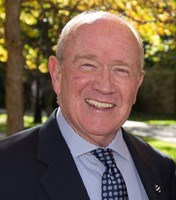
Theodore R. Alter
Pennsylvania State University
Professor of Agricultural, Environmental, and Regional Economics
Co-director, Center for Economic and Community Development
https://aese.psu.edu/directory/tra2

Biographical Abstracts
Dr. Ted Alter is professor of agricultural, environmental, and regional economics in the Agricultural Economics, Sociology, and Education Department at Penn State. He is co-director of Penn State’s Center for Economic and Community Development, co-editor of the Entrepreneurship Research Journal, and an adjunct research fellow in the Australian Center for Agriculture and Law at the University of New England in Australia. Dr. Alter served from 2012–2017 as one of the lead researchers for the institutional analysis and community-led action initiative of the Invasive Animal Cooperative Research Centre in Australia. The Victorian Rabbit Action Network, one of the community-led action projects stemming from this initiative, recently received the 2019 United Nations Public Service Award in recognition for its contributions to strengthening working relationships and shared responsibility among citizens and communities, industry, and government.
Alter’s research, teaching, and community engagement work focuses on community and rural development, the practice of public scholarship and civic engagement in higher education, and the political economy of democracy. In recent years, he has advanced his work to include the study of public and collective choice, democracy and innovation, and how paradigms of public discourse have shaped complex societal issues from technology and communications development to entrepreneurship and public-private partnerships. A central component of his work focuses on issues of democracy, emphasizing the roles played by organizations such as governments, private sector businesses, non-governmental organizations, and colleges and universities. He is driven by concern with how and for whom democracy works or does not work.
Areas of Expertise
- Community and public sector economics
- Entrepreneurship, innovation, and community
- Power and politics of expertise and alternative knowledge systems
- Public scholarship and the role of higher education in society
- Community engagement in natural resource management
